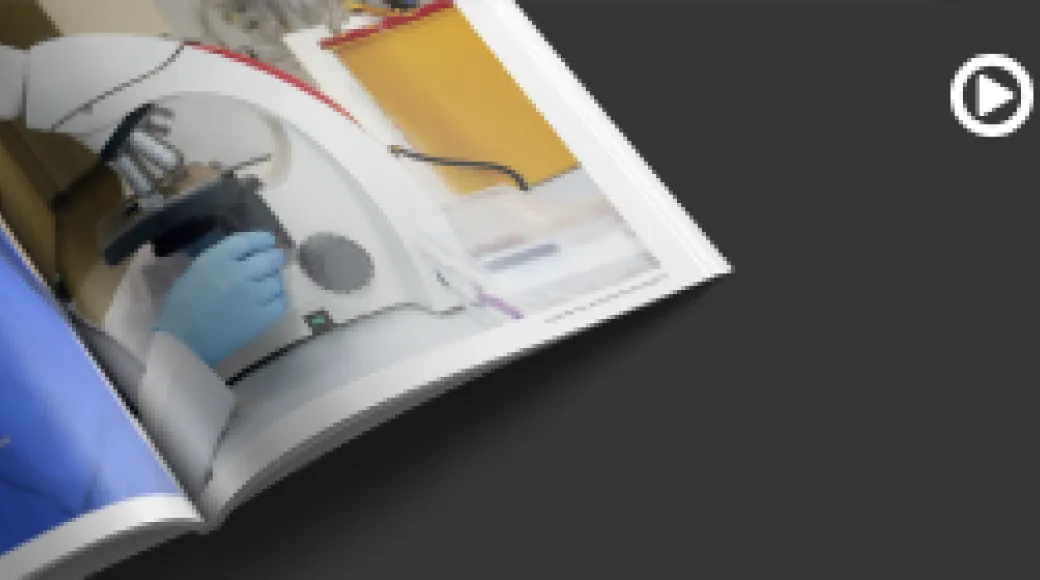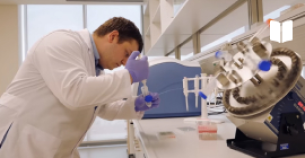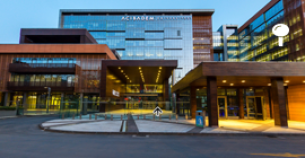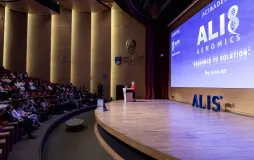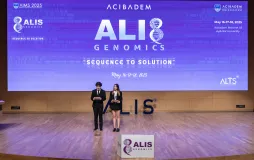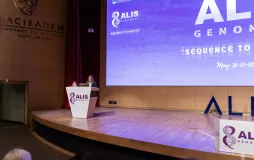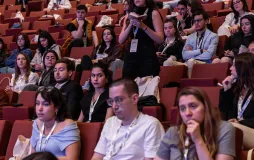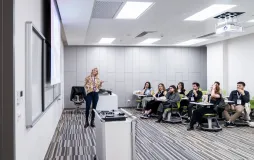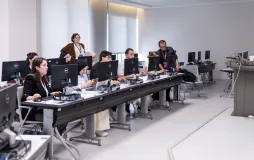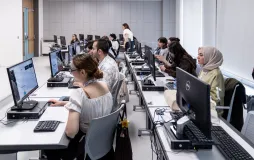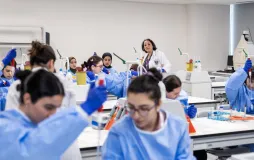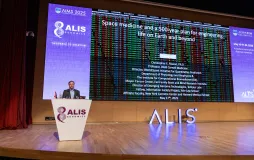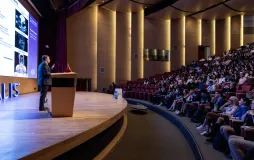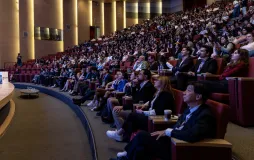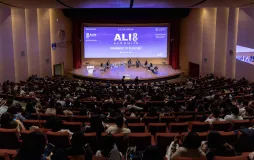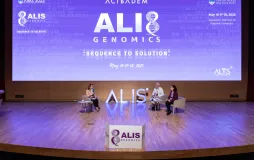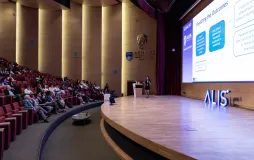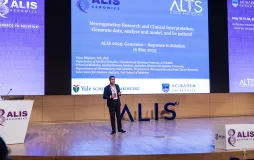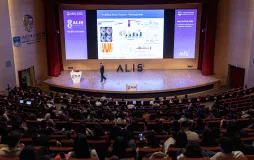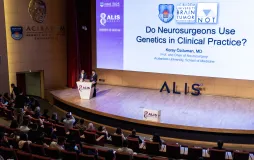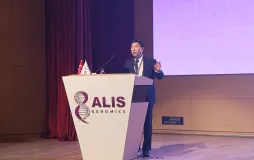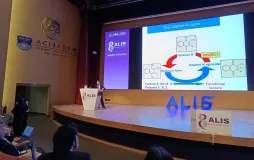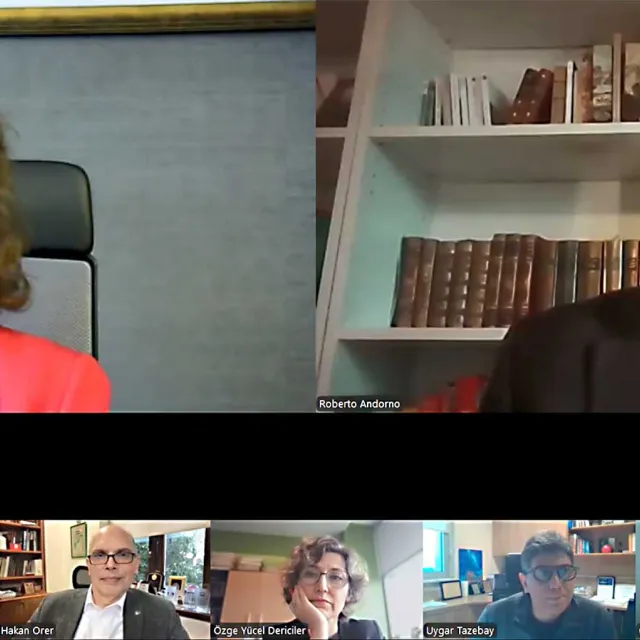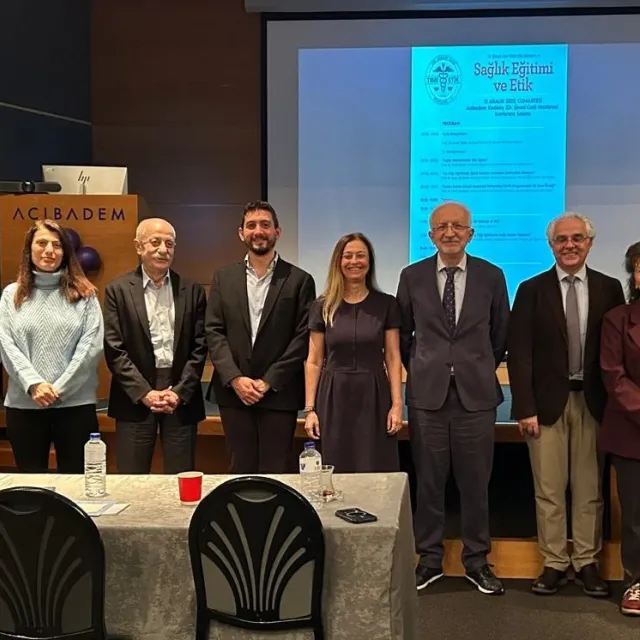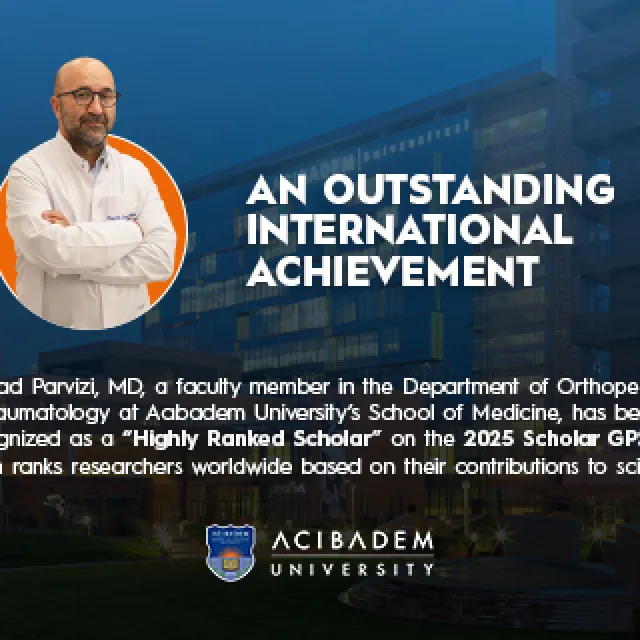Frequently searched keywords:
World-Renowned Genetic Experts Gather at Acıbadem University
Haber tarihi: 23/05/2025
Last update date: 23.05.2025
Significant and recent developments in genetic science were discussed at ALIS 2025, one of Turkey’s most comprehensive student congresses, held at Acıbadem University. Organized for eight years by the medical students of Acıbadem University, this year’s International Student Congress ALIS was held with the theme “Genomics: Sequence to Solution.” The event shed light on both today’s and the future’s genetic solutions.
Over 700 academics and students attended the congress, where 15 world-renowned scientists from three different continents—USA, UK, Japan, and Sweden—participated as speakers to discuss the present and future of genetic science. The congress shared a wide array of developments, from the genome to space, and from diagnosis to treatment, with particular emphasis on innovations in genetics and personalized cancer therapies.
Ömer Bahadır Kılıç, a third-year medical student at Acıbadem University and the President of the Congress, stated that this year’s theme focused on genetics and emphasized that they hosted world-renowned scientists from three different continents. He said: “In addition to sessions where scientific advancements were shared, we also offered over 40 workshops and presented the AIMS Kerem Aydınlar Student Research Awards, delivering a comprehensive program for our participants. We have once again successfully completed ALIS, one of Turkey’s largest student congresses.”
Among the prominent attendees, Harvard Medical School Pediatric Genetics Specialist Prof. Dr. Catherine Brownstein and Head of the Department of Neurosurgery at Acıbadem University Prof. Dr. Koray Özduman shared many striking topics with the scientific community—from genetic diagnosis to clinical applications, from artificial intelligence to long-read sequencing technology.
“We are in an exciting era for diagnosis and gene discovery”
Prof. Dr. Catherine Brownstein, Pediatric Genetics Specialist at Boston Children's Hospital, Harvard Medical School, noted that the advances in genetic science have fundamentally changed the processes of diagnosis and discovery. She pointed out that we are going through an incredibly exciting period in terms of diagnosis and gene discovery and added: “There are many new technologies becoming increasingly accessible, and the current state of research is better than ever. Thus, as sequencing costs dramatically decrease, sequencing the genomes of large families and distinguishing candidate genes will become much easier. Moreover, we used to struggle with individuals who had more than one disease diagnosis. But as we can now sequence more families and analyze their genetic structures, it will become easier to differentiate, identify, and diagnose such cases.”
“AI doesn’t get tired, and its advantages are vast”
Brownstein emphasized the significant advantages offered by new technologies: “Technologies like long-read sequencing are becoming increasingly accessible. Thanks to this technology, we can obtain much more information—even epigenetic data—from a single genome than we normally could. This is a development that particularly excites me.” She also discussed the advantages offered by artificial intelligence technologies in interpreting genetic data, saying: “AI doesn’t get tired. No matter how many articles we read or how much literature we try to access, we can never do it as efficiently and quickly as AI. That’s why this is an incredibly exciting period for hypothesis generation as well.”
“With advances in genetic science, treatments are now more effective”
Another key participant, Prof. Dr. Koray Özduman, Head of the Department of Neurosurgery at Acıbadem University, spoke about recent developments in the treatment of complex brain tumors such as gliomas, especially in the field of neuro-oncology. He emphasized that genetic research has significantly improved success rates in neurosurgery: “Molecular genetics—what we refer to as genetic research—has changed our field of neurosurgery in unimaginable ways. Thanks to genetic data, diagnoses have now become much more objective. Over time, we noticed that tumors have genetic alterations on their 'collars'—like a badge—that define and identify all the characteristics of the individual. Thanks to advancements in genetic science, we can now treat diseases much more effectively based on their genetic characteristics.”
Latest advancements from genetic diagnosis to artificial intelligence shared
Prof. Dr. Yusuke Nakamura from the University of Chicago, a pioneer in cancer genetics and a key figure in personalized cancer treatments, drew attention with his speech. Prof. Dr. Christopher Mason from Weill Cornell Medicine, one of the lead researchers of NASA’s Twins Study, revealed the effects of long-term space travel on genes and the immune system. Meanwhile, Prof. Dr. Naomichi Matsumoto from Yokohama City University in Japan, a pioneer in genetic diagnosis, highlighted that he has identified the genetic basis of over 50 rare diseases, offering hope to thousands of undiagnosed patients.
Swedish couple Helene and Mikk Cederroth, who founded the Wilhelm Foundation after losing three of their children to rare diseases, were also among the congress speakers. They emphasized that thanks to the funds they provide, many new research projects have been launched and a beacon of hope has been lit for undiagnosed patients.
Assoc. Prof. Dr. Kaya Bilgüvar, Head of the Department of Medical Genetics at Acıbadem University, who shared his scientific studies focusing particularly on the genetic foundations of neurological diseases, spoke about the importance of developing innovative diagnostic tools.
Prof. Dr. Javad Parvizi, a globally recognized authority in orthopedics and a faculty member at the Department of Orthopedics and Traumatology at Acıbadem University, inspired especially medical students with his life story and presentation, providing guidance for their career journeys.
Prof. Dr. Adil Mardinoğlu from King’s College London, a pioneer in systems biology and multi-omic analysis, demonstrated in his presentation how his work on obesity, diabetes, and liver diseases is paving the way for personalized medicine.
In a panel focusing on the latest developments in rare diseases, Prof. Dr. Özden Hatırnaz Ng, Advisor to the ALIS Congress, Board Member of Acıbadem University’s ACURARE Center for Rare Diseases and Orphan Drugs, and Vice Dean of the Medical Faculty; Prof. Dr. Uğur Özbek, Genetic Specialist from İzmir Biomedicine and Genome Center; and Attorney Güneş Uyar, Health Law Expert from the Rare Diseases Federation, shared their insights.
Renowned actor Mert Fırat added color to the congress with his talk titled “Goodness is in Our Genes,” where he discussed social responsibility projects.
